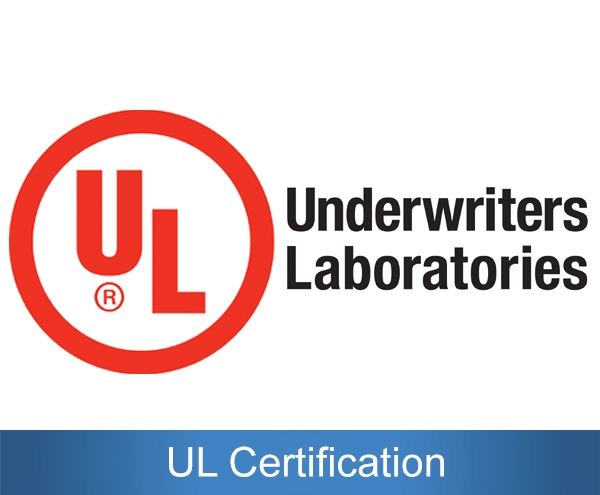Universally recognized as the global leader in battery safety testing, UL helps battery product manufacturers gain fast, unrestricted access to the global market.
UL not only tests and certifies batteries, but also contributes to the development and international harmonization of industry safety and performance standards.

What is Underwriters Laboratories (UL) ?
UL is an independent product safety certification organization which, in conjunction with other organizations and industry experts, publishes consensus-based safety standards. For lithium batteries, key standards are: UL 1642 (Lithium Batteries) – This standard is used for testing lithium cells. Battery level tests are covered by UL 2054. UL2054 (Household and Commercial Batteries) – For lithium batteries, UL 2054 defers all component cell level testing to UL 1642. UL 2580 (Batteries for use in Electric Vehicle
What is UL 1642 (Lithium Batteries)?
UL 1642 (Lithium Batteries) – This standard is used for testing lithium cells. Battery level tests are covered by UL 2054. ... IEC 62281 (Safety of primary and secondary lithium cells and batteries during transport) This standard is similar to UN/DOT 38.3.
What is UL 2054 (Lithium Batteries)?
UL1642 deals with individual cells while UL2054 is for small rechargeable battery packs. ... Although UL2054 is not a mandated test for products shipped into the US, it is often mandated by US end device standards and it is a pretty severe test as it requires a single fault to be applied on the battery pack
Why is Battery Safety Testing Important?
Mobile devices have become essential tools for business and leisure. The safety, efficiency and reliability of the batteries that power cellphones and other devices play a key role in continued market growth. UL offers more than 30 years’ experience in battery performance testing, helping to foster innovation and boost confidence in quality.
Worldwide Accreditation
We test and certify virtually every type of battery available—including lithium-ion battery cells and packs, lithium polymer battery — to UL Standards as well as key international, national and regional regulations including:
- UL 1642 Lithium Cell
- UL 2054 Nickel Cell or Lithium/Nickel Packs
- UL 1989 Standby Batteries
- UL/CSA/IEC 60950 (may be evaluated in conjunction with UL 2054)
- UL/CSA/IEC 60065 (batteries used in audio and video equipment)
- IEC 60086-1 and IEC 60086-2 Non-rechargeable Performance
- IEC 60086-4 Non-rechargeable Lithium
- IEC 60086-5 Non-rechargeable Alkaline
- IEC 61951-2 and IEC 61951-2 Performance of Rechargeable Ni-Cd or Ni-MH
- IEC 61960 Performance of Rechargeable Lithium
- IEC 62133 First and Second Edition Rechargeable Nickel or Lithium
- Japan’s DENAN Ordinance Article 1 Appendix 9
- CTIA—IEEE 1625 and 1725
- Taiwan’s BSMI standards
- IATA/UN DOT/UN 38.3 T1-T8 (or IEC 62281)
Powering Global Market Access
UL helps to simplify multiple market compliance by bundling product tests and certifications to meet all relevant national and regional market standards. Regardless of your location, this ‘one-stop-shop’ simplifies the process, reduces administrative and project management costs, and accelerates access to global markets.



